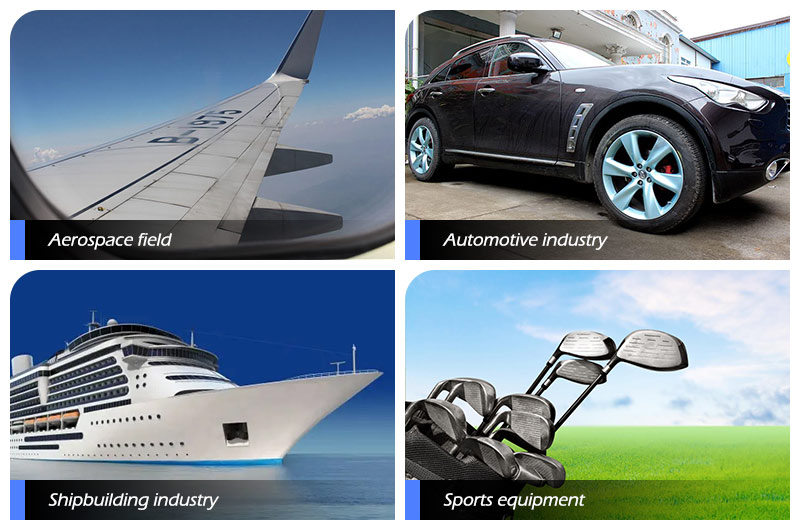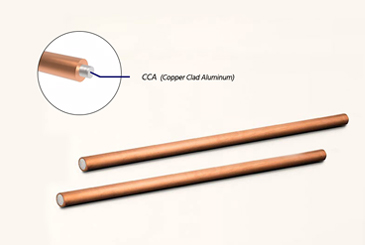2017A aluminum wire rod is usually used in the manufacture of fasteners, such as screws, nuts, bolts and other fasteners. These aluminum wire rods are extruded or drawn and have good mechanical properties and processing properties.
Why choose Chalco 2017A aluminum wire rod for fasteners?
Production capacity
Chalco Aluminum is an enterprise that integrates the design, development and precision testing of smelting, extrusion, and fine-drawn aluminum manufacturing. It can provide excellent quality 2017A aluminum wire rods for fasteners, as well as high-quality technical services in the market, and how to support Customers have a deep knowledge base in meeting the challenges of the future.
Certified product
We have passed the AS9100 certification required by the aviation industry and the IATF16949 certification required by the automotive industry, providing a strong guarantee for the quality of the aluminum wire rods used for fasteners produced by our company.

2017A chemical composition of aluminum wire rod for fasteners
| Element | Composition % |
| Si | ≤ 0.5 |
| Fe | ≤ 0.7 |
| Cu | 0.5-0.9 |
| Mn | 0.4-0.8 |
| Mg | 0.4-0.8 |
| Zn | ≤ 0.25 |
| Ti | ≤ 0.15 |
| Al | ≥ 90.0 |
2017A specifications for aluminum wire rods for fasteners
| Size | 1.6-10.0mm |
| Temper | T4, H13, H18 |
| Size Tolerance | ±0.02mm |
| Weight Coil | Above 50KGs |
| Function | Fastener |
2017A mechanical properties of aluminum rods for fasteners
| Alloy | Supply temper | Sample temper | Diameter mm | Mechanical properties | |||
| Tension Strength Rm Mpa | Yield Strength R p0.2 Mpa | Elongation after break/% | |||||
| A100 mm | A250 mm | ||||||
| Not less than | |||||||
| 2017A | H13 | H13 | 1.6-10.0 | 210-300 | 190 | 5 | - |
| T4 | T4 | 1.6-10.0 | 380 | 255 | 18 | - | |
| H18 | H18 | 1.6-10.0 | 315 | - | - | - | |
2017A allowable deviation of the diameter of aluminum wire rod for fasteners
| Diameter | Tolerance allowed | |||
| Grade A | Grade B | Grade C | Grade D | |
| ≤1.6 |
+0.000 -0.015 |
+0.015 -0.015 |
±0.015 |
+0.00 -0.04 |
| >1.6-4.0 |
+0.000 -0.025 |
+0.025 -0.015 |
±0.025 |
+0.00 -0.05 |
| >4.0-6.0 |
+0.000 -0.030 |
+0.025 -0.025 |
±0.040 |
+0.00 -0.08 |
| >6.0-10.0 |
+0.000 -0.040 |
+0.050 -0.025 |
±0.060 |
+0.00 -0.12 |
2017A appearance quality of aluminum rods for fasteners
| Defect name | Technical requirement |
| Fastener aluminum wire | |
| Cracks, burrs, peeling, air bubbles, bumps, dents, scratches, triangular mouths, metal press-in, non-metal press-in and surface corrosion | Not allowed |
| Scuffs, scratches, bumps | Allowable depth does not exceed half of the negative deviation value |
| Oil spots | Allowed |
2017A features of aluminum rod for fasteners
High strength: 2017A aluminum alloy rod has high strength, especially after proper heat treatment, its strength can be further improved. This makes it excellent in applications that need to withstand high forces and pressures.
Good corrosion resistance: the alloy contains a certain amount of copper and magnesium, which endows 2017A aluminum alloy with good corrosion resistance. Therefore, when used in humid or harsh environments, it can effectively resist oxidation and corrosion and prolong its service life.
Weldability: 2017A aluminum alloy rod has good weldability, and can be connected into complex structures by different welding methods, which is convenient for manufacturing and maintenance.
Good machinability: the alloy is easy to machine and form, making it suitable for many different processing techniques, including extrusion, casting, forging, and machining.
Excellent electrical conductivity: 2017A aluminum alloy rod has good electrical conductivity, suitable for electrical and electronic applications that require good electrical conductivity.
Lightweight: aluminum alloy is a relatively lightweight material compared to many other metals, making it useful in applications where weight reduction is required, such as aerospace, automotive, and sports equipment.
Renewability: aluminum is a renewable metal, and the 2017A aluminum alloy poles can be recycled and reused, helping to reduce resource consumption and environmental impact.

2017A application of aluminum wire rod for fasteners
Aerospace industry: 2017A aluminum alloy rods are often used in the manufacture of aircraft and spacecraft parts, such as aircraft wings and beams, missile parts, etc. Its high strength and good corrosion resistance make it ideal for aerospace applications.
Automobile industry: due to its excellent strength and toughness, 2017A aluminum alloy rod is widely used in automobile manufacturing, especially in braking system, steering rod, engine parts and chassis components.
Shipbuilding: 2017A aluminum alloy rods are used in shipbuilding to make hull structures and ship accessories. Its light weight and corrosion resistance make ships more fuel efficient and durable.
Sports equipment: 2017A aluminum alloy poles are widely used in the manufacture of various sports equipment, such as golf clubs, bicycle frames, ski poles, etc. Its light weight and rigidity help improve equipment performance and handling.
Electrical industry: 2017A aluminum alloy poles are also used in the electrical industry, such as power transmission poles and electrical connectors, because of its good electrical conductivity and corrosion resistance.
Engineering structures: 2017A aluminum alloy rods are also used in buildings and other engineering structures, such as support rods, trusses and brackets.















